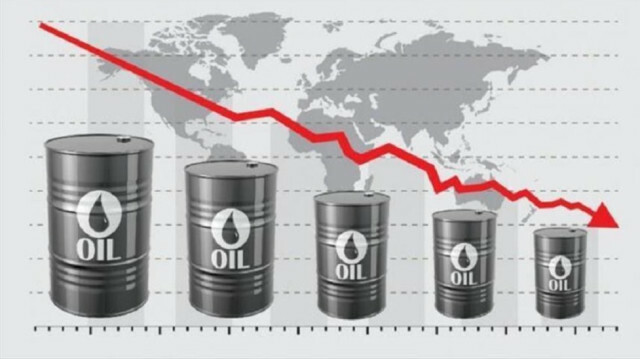
Oil prices declined on Tuesday as the ongoing tension between Iran and the US in negotiations to revive the 2015 nuclear agreement and lift Iranian oil export sanctions raised investor caution.
International benchmark Brent crude was trading at $68.12 per barrel at 0744 GMT for a 0.36% drop after closing Friday at $68.37 a barrel.
American benchmark West Texas Intermediate (WTI) was at $65.78 per barrel at the same time for a 0.40% fall after ending the previous session at $66.05 a barrel.
The downward oil price movement was driven by the toing and froing between Iran and the US in negotiations on potentially lifting the current US sanctions on Iranian oil exports and the US’s return to the 2015 nuclear deal, leading investors to take a “wait and see” stance.
Iranian President Hassan Rouhani said Monday the US has no other option than to lift all sanctions on Iran, which violates the 2015 nuclear deal with world powers.
Iranian Foreign Minister Javad Zarif urged the US administration on Monday to lift current sanctions against Iran, which were imposed under former US President Donald Trump.
In response to a recent statement by US Secretary of State Antony Blinken regarding US sanctions on Iran, Zarif said on Twitter: “Lifting Trump's sanctions, is a legal and moral obligation. NOT negotiating leverage.”
“Didn’t work for Trump - won't work for you”, Zarif said.
Zarif called on authorities to release Iran’s billions of dollars taken hostage abroad because of Washington’s “bullying.”
Speaking on ABC News' This Week With George Stephanopoulos, Blinken said on Sunday that the lifting of US sanctions on Iran depends on Tehran's compliance with its nuclear commitments toward Washington.
"Iran, I think, knows what it needs to do to come back into compliance on the nuclear side, and what we haven't yet seen is whether Iran is ready and willing to make a decision to do what it has to do. That's the test and we don't yet have an answer," Blinken said.
Over the past several weeks, Iran and other signatories to the deal, officially known as the Joint Comprehensive Plan of Action (JCPOA), have been engaged in marathon negotiations in the Austrian capital Vienna to revive the accord.
Former President Donald Trump unilaterally withdrew the US from the agreement in 2018 and reimposed sweeping sanctions it had agreed to lift under the deal and imposed new ones in the hope that the penalties would bring Iran back to negotiations for what Trump hoped would be a "better" deal.
Iran resisted his efforts and instead stepped away from the nuclear restrictions it agreed to under the accord as regional tensions between the US and the Islamic Republic soared.
The JCPOA is an agreement on the Iranian nuclear program reached in Vienna on July 14, 2015, between Iran and the P5 1, comprising the five permanent members of the UN Security Council -- China, France, Russia, the UK and the US -- plus Germany together with the European Union.
- Investor optimism limits further price declines
The possibility of a return of Iranian crude to global markets was countered by optimism that the markets were now ready to absorb more barrels based on the pace and the course of the vaccination campaigns.
According to new data from the Centers for Disease Control and Prevention (CDC), 25 US states, which is half of the country, as well as Washington D.C., have fully vaccinated at least 50% of their adult population as of Sunday.
The market optimism was fueled by positive forecasts on recovering demand.
Even with a possible resumption of Iranian supplies, Goldman Sachs forecast oil prices would rise to $80 per barrel in the fourth quarter of this year, noting that the market has miscalculated a recovery in demand.













